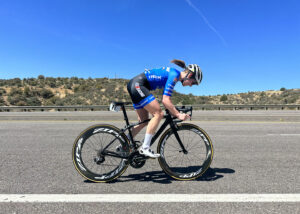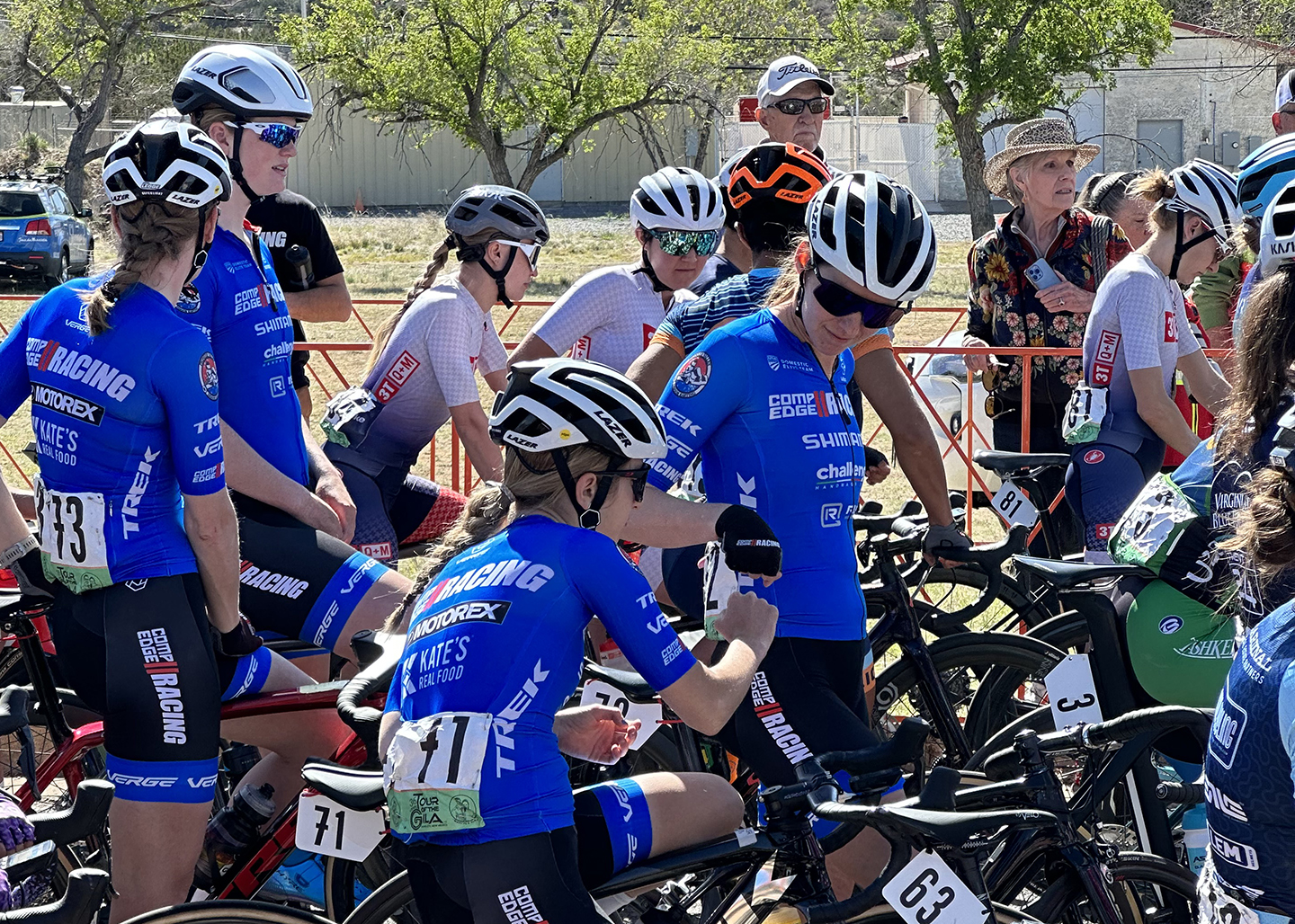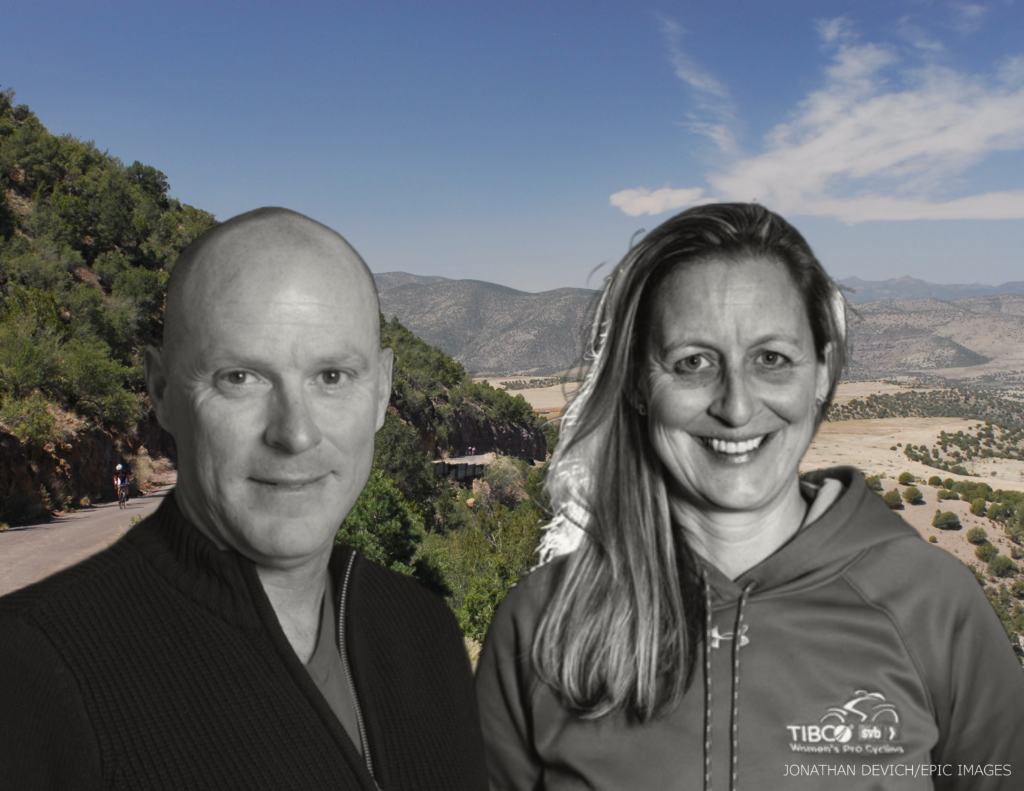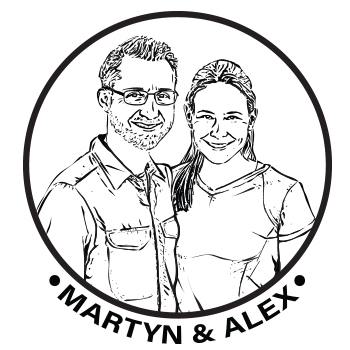Racing Tour of the Gila while expecting was one rider’s lesson in listening to her body.
Anna Megale wants to shout it from the rooftops: “Pregnant women are stronger and more capable than what we have been traditionally told, we can do awesome things!”
The new mom also offers advice to other female cyclists on the journey to motherhood: “Set your own goals. Don’t let other’s big achievements make you feel as if you are missing the mark.”
Megale raced Tour of the Gila in 2023 while expectant with her son, who was born in December 2023. “My husband and I were talking about starting a family. It happened faster than we planned, the Competitive Edge athlete says. “I thought I would have time to do Tour of the Gila beforehand.”
Although last spring was Megale’s first (and, so far, only) time racing in southwest New Mexico, it was not her first stage race. “I technically was more of a road rider when I first got into riding bikes,” she says, noting that she started racing after college and now works as a pricing analyst for Micron Technology. “Road racing at the amateur level was something I did first. Then I got really into cyclocross. Road racing is where I build my training and my base. It’s the best, most fun way to train for cyclocross. I would do a lot more road if I didn’t also have a full-time job. Races like Toru of the Gila are a huge time commitment not just in training but the number of days you’re there.”
Last year was Competitive Edge’s first year putting together a road program. “Tour of the Gila was my first UCI road race. All my other UCI racing was in cyclocross,” Megale says.
As an athlete, she said making the decision about when to have a baby was difficult. “I wanted to have a baby and I wanted to keep racing.”
She found out she was expecting four weeks before Tour of the Gila and panicked, questioning whether she could race. “There’s so much unknown—a huge lack of knowledge out there. Where do I look? How do I ask?” she remembers “I was training very hard at the time. I talked to my doctor and thankfully had a supportive doctor. The main thing she told me was to keep riding, as long as I avoided crashing.”
Being still at risk of miscarriage during Tour of the Gila, she had only shared the news with her immediate family and her teammates in Silver City. “I was eight weeks pregnant and definitely could tell,” she says. “Visibly, you couldn’t. But for me, I was like, ‘Oh my gosh.’”
Physically, she says, the female body is more than capable of training and racing. Megale wasn’t able to get herself to the highest level while carrying her son though. “I had my best power numbers before I got pregnant. At Tour of the Gila, I couldn’t get my power quite to what I was capable of.”

Competitive Edge racer Anna Megale rides in the Tyrone Individual Time Trial during Tour of the Gila 2023.
She finished all the stages I started, choosing to sit out the downtown Silver City criterium. “For me, that felt like I’ve giving up, but at the same time, as somebody who’s pregnant, you have to trust your instincts,” Megale says, noting the higher risk of crashing during criteriums. “I was scared of what could happen, so I made that choice. It killed me because then I had to ride in the follow car Sunday.”
While she did have some regrets about leaving the race, she says, “Ultimately, I made the right call on that one.”
During the three stages of Tour of the Gila she completed, Megale admits to riding a little more cautiously in the peloton. “But I was more focusing on nutrition and staying hydrated. Especially in the beginning of pregnancy, your body is growing a placenta and a baby. You’re making sure you’re keeping your body fueled.”
She also took care not to get overheated. “In a race where it can get warm, I was kind of worried about that,” Megale says. “If it felt like a dangerous situation, I would’ve stopped.”
During Tour of the Gila, Megale felt cared for by her Competitive Edge teammates even though she personally worried she might fail them if she couldn’t perform. “I told them I would communicate with them and wanted to race as if everything was normal. I still put in efforts to support them. They asked me how I was doing all the time and supported me 100 percent,” she says. “I’m actually really happy I was able to do that.”
Tour of the Gila was the last road race Megale competed in while expecting, although she didn’t stop training and even raced gravel and cyclocross later in her pregnancy. “As you get bigger, it gets harder to ride a bike,” she says. “I knew I couldn’t race at my best. I would be racing at a slightly lower level. Mentally, I wanted to just train not race. Compared to my normal, I was definitely not fast.”
Not finding many resources for athletes who are pregnant, Megale knew of professional athletes who were training and racing thousands of miles through their pregnancy. “You look at them and think, ‘I should be able to do that.’ But what is the normal?” she asked herself.
Just like many other expectant women, Megale felt fatigue and slightly queasy at times but didn’t have severe morning sickness. “I woke up and didn’t feel normal, but if I ate food and got myself moving, I would feel fine. I think actually riding the bike, getting my blood flowing and got myself moving, helped me feel better,” she says.
Riding became increasingly difficult over the months for Megale, who worked a day job and rode every evening. “It’s totally possible, especially as an amateur. It’s a challenge but our bodies are capable of it,” she says. “The most important thing is you’re listening to your body, which is the same as before. If something feels off, then take a step back.”
Able to start riding the trainer about three weeks postpartum, Megale has focused on strength training and is working rides in around her baby’s feeding schedule. “A lot of cyclists train their core but I don’t think realize how much you really use your core until after having a baby. I’m still breastfeeding, and he eats every two or three hours. As he’s getting older and the weather is getting nicer, I’ve done a few two-hour rides.”
This spring, Megale and her husband plan to start racing again, maybe even getting back to full strength and a full race schedule. “Local races will really be a test of where my physical ability is at first,” she says. “I don’t know if it’s a myth but people talk about mom watts.”




























